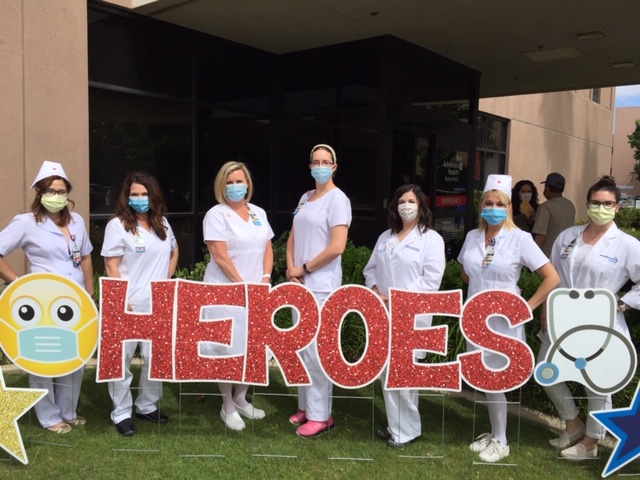The frustrations that erode happiness comes easy; we can complain, we can be tough, keep your attitude in the right direction and rub off on others. Your attitude matters because people can push the right button at the right time. I don’t know about you; I try not to keep score. So, it’s self-evaluation not trying to keep score when it comes to your attitude. There are times you have to go okay, big sigh, and ask someone else to step in, letting them know that you’re having a challenge. It’s a communication challenge, and you’re not winning—high time for an attitude check.
As leaders, we have to play the hand we’re dealt with a can-do attitude. I got this; we can do this can be easier said than done. Attitude is something that you need to keep in check because it will rub off on others.
Focus, called concentration, is the responsibility of leaders each day and comfortable when you’re playing a game. But when you’re dealing with people in every walk of life, your focus can sometimes be pushed in different directions. Remember this, though, when you’re giving something half your attention, you will suffer. So, you have to treat your job like it’s your mission in life. Sometimes you have to take the emotional aspect of it; in other words, deal with it quickly and remain focused. Escalating the issue makes it worse. And it may be hard not to escalate things when people aren’t cooperating. Sometimes you may have to stop and ask for mercy! Sometimes we get mixed up in our roles, are we the leader or are we the employee. As a leader, focus equals results.
Urgency, as a leader, you need a sense of urgency. You have to know with every beat of your heart that success is the most important to you. Tough because as catastrophic things happen, when you’re discovering the reason, there is an urgency to fix it before it escalates to another level. When you’re dealing with patients’ lives, there is an urgency to fix it. Behavior issues there is the urgency to fix them. Right now is the importance of value-based care, productivity, premium pay, finding talent, physician and employee engagement, and growth. It’s not going away anytime soon.
The effort takes a hundred percent every time. It may be easy to back off when executives aren’t always talking about it. As a leader committing yourself to the process, what you will learn will result in more success. There may be no employee cheering for you on day by day basis. But seeing the results of your leadership is more critical than a cheering group of employees. There should be nothing you wouldn’t give your employees so they can be successful. Put your best foot forward.
Buy-in is related to effort and focus. It is critical to support your team. It is crucial to identify your strategies, your plans, and your desired outcomes.
Composure is emotional self-control. What happens when you see red? When you see red, you should take it as a sign to stop. It’s like driving a car when you see red you stop. It doesn’t mean drive fast through the intersection. Do not tolerate a lack of emotional self-control in yourself or others. Keep your poise under pressure; keep your composure. In leadership, anyone can take the lead in becoming a great example. Show your team and give a hundred percent, lead by example. Sometimes, what you do speaks so well, we don’t have to hear what you have to say. Stay with it. Show emotional control.
Preparation means honing your fundamental leadership skills are and improving your skills for your position. Always be prepared for what will or might not happen. Understanding the situation before you and be prepared for unexpected things to happen can soften the effect of surprise. Try to be ahead of things. You can be ready for everything and prepared for nothing. Proper preparation prevents poor performance.
The practice is more than running scenarios over and over again. It is learning to work as a team; it is learning to work with people in general. It knows what to do, knowing what others are doing, it is learning your position and what to do when the outcomes go right and also means learning what to do when results go wrong. Other people must be on the same journey that you are. Sometimes it may be challenging to get all your team on the same page. Once you get everything dialed in and ready to go, go.
Planning, an average plan executed at an A level versus an A level plan executed at C level, end up with different results. Know your destination and develop your project to develop an A level plan and implement it at an A level.
Winning attitude, as the leader of your team, you need to develop a winning attitude together. Believe in each other, believe you’re going to get the outcomes you have set out to achieve. Encourage one another, be generous with your praise, and thanks. Eliminate excuses; there is no room for reasons when you’re dealing with people’s lives.
Teamwork is critical to patient care. Collaboration is vital when it comes to individual performance and overall performance. A partnership is when leaders, physicians, and employees are working hand-in-hand to get the job done.
Leadership is not an exact science. Having a fantastic group of physicians and staff and having a great plan doesn’t guarantee you success. Quite often, working patient care will break your heart. That is healthcare. But by working hard in using these keys to success can increase your chances.
You attitude matters





